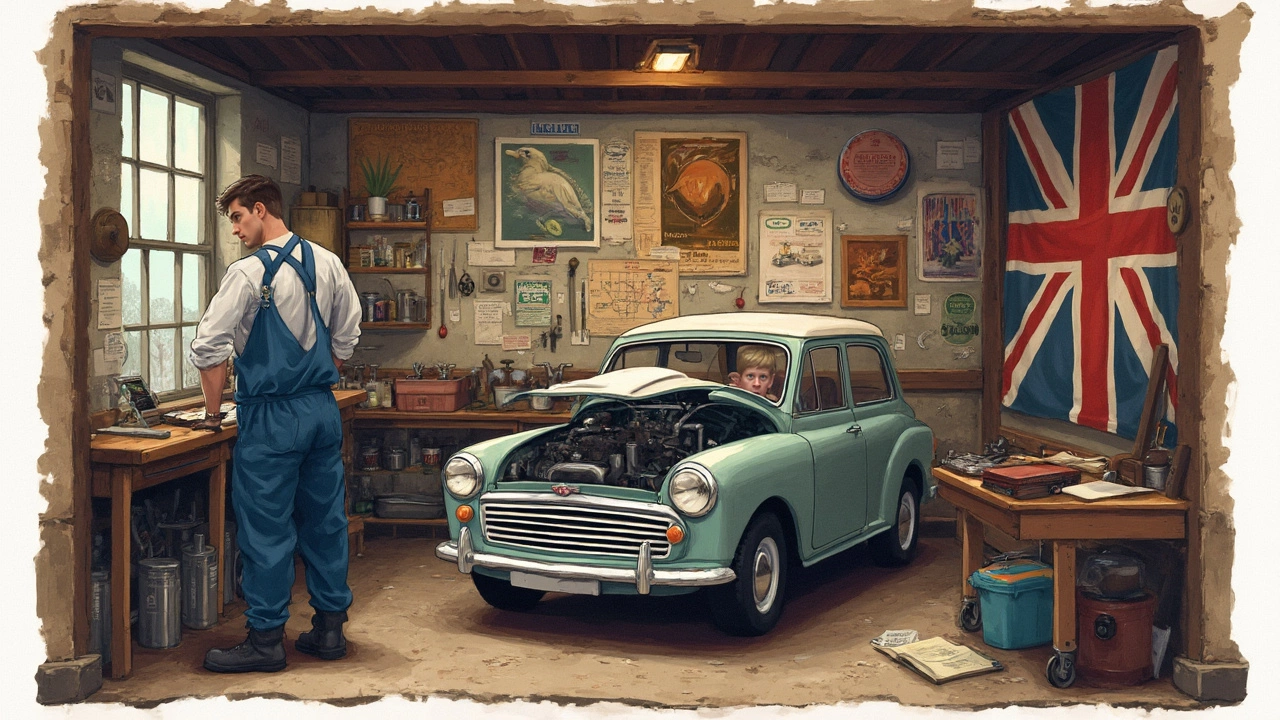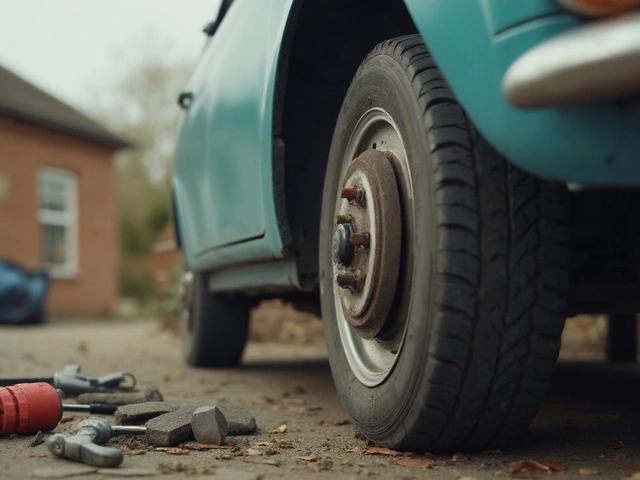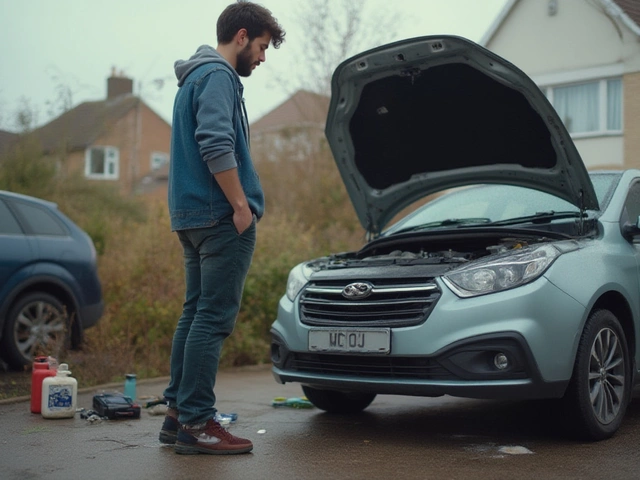When your car begins acting like it's throwing a temper tantrum, its fuel pump might be the culprit. Picture this: you’re cruising down the road, and suddenly, your car starts losing power or stuttering. Annoying, right? These are classic signs of a fuel pump on its way out.
In many cases, cars will misfire or struggle to accelerate, especially when that dreaded pump isn’t delivering enough fuel to the engine. Sometimes, it just refuses to start altogether. It's like it's mocking your plans!
Keeping an ear out for whining noises from the gas tank area can also be a tip-off that the pump's struggling. Those boring hums turning into growls are definitely worth noting.
Know these signs, and you might just save yourself from the inconvenience of a surprise breakdown on the side of the highway. A little awareness goes a long way in keeping your wheels rolling smoothly.
Common Symptoms
So, what's the deal when your fuel pump is on its last legs? It can be like trying to diagnose a sudden chill in the middle of summer. But don't worry, I've got you covered with some clear signs.
Whining Noises
If your car’s got a peculiar whine coming from the gas tank area, it's not just begging for attention. It's the fuel pump hinting it’s under duress. A screeching sound is definitely worth checking out.
Engine Sputtering
Picture this - you're sailing along, and suddenly the engine sputters like it’s taking a sip of bad coffee. This usually happens at higher speeds, and it’s a major red flag that the fuel pump might not be supplying enough fuel to the engine. Talk about a buzzkill.
Starting Issues
Sometimes, starting the car feels like trying to solve a complex puzzle without the last piece. If you crank the engine and it only occasionally sputters to life, you might be dealing with a dying fuel pump.
Power Loss Under Stress
Driving uphill or carrying heavy loads tends to make your engine demand more fuel. If your car behaves like it’s going into a slow-motion scene from an action movie, it could be the fuel pump struggling to meet that demand.
Sudden Engine Stalls
There’s nothing more annoying than an engine that decides to take an unsolicited nap in the middle of traffic. Unexpected stalls are often tied to a fuel pump that's just not cutting it anymore.
Poor Fuel Efficiency
Keep track of your fuel use. If you find yourself hitting the gas station more frequently without an obvious reason, don’t just blame your lead foot. A dodgy fuel pump can lead to poor fuel efficiency.
These symptoms paint a picture that’s hard to ignore once you know what to look for. A heads-up on these issues might just save you from being stranded when you least expect it.
Why it Happens
So, you're probably wondering, why do these fuel pumps fail in the first place? It’s a good question with no single answer, but we’re here to break it down to the usual suspects.
Wear and Tear
Like anything else in your car, a fuel pump has a lifespan. After all those miles, it can simply wear out. It’s dealing with a lot of pressure, so over time that internal wear catches up with it. Most pumps last between 100,000 to 200,000 miles, but that can vary.
Dirty Fuel
Ever put something other than gas in your tank? Bad idea. Dirt, gunk, and impurities in fuel can clog up the filter or pump. This not only restricts fuel flow but also forces your fuel pump to work extra hard, which isn't ideal.
Running on Empty
Think of your gas tank as the fuel pump’s cooling system. Driving frequently on low fuel levels can cause the pump to overheat because gas helps cool it down. Less fuel means less cooling, leading to a toasted pump.
Let’s be real, ignoring regular car maintenance is a quick way to run into trouble like this. Stay on top of routine checks and fill-ups, and you’re less likely to face these issues.
Electrical Issues
Sometimes, it’s not even the pump’s fault. Faulty wiring can cause the pump to get inconsistent power. Next thing you know, it’s struggling to keep your engine happy.
Here is a quick look at the potential lifespan of a fuel pump:
| Miles Driven | Condition |
|---|---|
| 0-100,000 | Usually Reliable |
| 100,000-200,000 | Starting to Show Age |
| 200,000+ | Likely Near Replacement |
Remember, knowing these reasons can help you be proactive. A stitch in time saves nine when it comes to car trouble!

Preventive Measures
So, how do you keep your fuel pump happy and your car humming along smoothly? Let's dive into some practical tips to avoid frustrating breakdowns.
Regular Maintenance Checks
Your car is like your body; it needs routine check-ups. Keeping up with regular vehicle maintenance can catch potential issues before they become major headaches. Make sure your mechanic inspects your fuel pump during tune-ups.
Watch Your Fuel Quality
Think about what you're putting in your tank. Using high-quality fuel can help keep your fuel pump in top shape. Cheap fuel might save you a few bucks initially, but it could cost you more in the long run.
Keep Your Tank Full
Running on fumes? Try to avoid it. Keeping at least a quarter tank of gas can help your fuel pump last longer. An empty tank can cause the pump to overheat and fail prematurely.
Use Fuel Additives Wisely
Fuel additives can be beneficial, but use them wisely. They can help clean out any gunk that might clog up the fuel pump and filters, but overuse can be detrimental. Follow manufacturer guidelines.
Listen to Your Car
No one knows your car better than you do. If you notice any strange noises or performance issues, don't ignore them. These could be signs of a developing problem with the fuel pump or other components.
| Preventive Action | Benefit |
|---|---|
| Routine Maintenance | Early detection of problems |
| Use Quality Fuel | Prevents wear and tear |
| Maintain Fuel Level | Prevents overheating pump |
By staying proactive and taking these steps, you can extend the life of your fuel pump and keep your car running smoothly. It's all about prevention, so you aren't left stranded and stressed out on the road.
When to Seek Help
So, when is the right time to call in the pros for your fuel pump woes? It's not always easy to make the call, but here are some telltale signs signaling it's time to wave the white flag and get your ride checked out by a mechanic.
Persistent Starting Issues
If your car feels like it's taking forever to start or refuses to start altogether, that's your first sign. Before you run out of patience, have a mechanic inspect it. They can determine if it's the fuel pump or another issue like the battery or starter.
Acceleration Problems
Are you pressing the gas, but your car is more 'meh' than 'vroom'? That lack of power during acceleration could mean the engine's not getting enough fuel. A fuel pump check-up is definitely in order before things get hairier.
Strange Noises
A whining sound coming from your fuel tank area is usually a little less romantic and a lot more worrisome. If you're picking up on odd noises where your trusty fuel pump resides, it’s time to have someone take a professional listen.
Sudden Stalling
Stalling isn't just an annoyance—on a busy street, it can be dangerous. If you're finding your car stalling out of the blue, don’t just hope it'll fix itself. The pump might not be delivering enough fuel, so it's wiser to have an expert look under the hood.
Fuel Efficiency Takes a Dive
Noticing you’re hitting the pump way more often? If your mileage is nosediving, something’s off. The problem could be your fuel pump working overtime and still not keeping up. Time for a professional diagnosis.
Tip: Being proactive can save you from a breakdown situation. Regular checks of your fuel system by professionals can keep you ahead of these sneaky issues.






